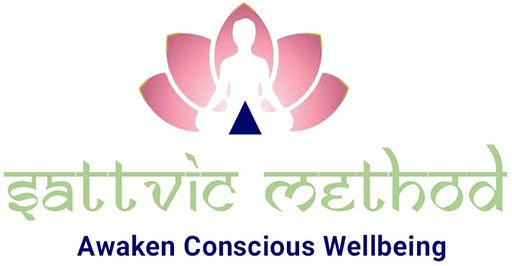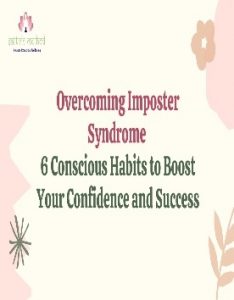In a world where women are increasingly taking charge of their lives, breaking societal stereotypes has become more significant than ever. As women stand on the edge of unprecedented opportunities, they also many face constraints that hinder their journey to self-leadership. From societal expectations to internal struggles, these barriers often prevent women from unlocking their true potential. In this blog post we explore some of the common constraints women face and how they can transform them into steppingstones toward self-leadership. The journey to self-leadership for women is not without obstacles, but it is one that empowers them to shatter glass ceilings and redefine success on their own terms.
The concept of self-leadership offers a pathway to personal growth and fulfillment as women navigate professional challenges, family expectations, and societal pressures. Through self-awareness, self-confidence, and self-determination, women can develop the skills necessary to become not only successful leaders in their respective fields but also champions of their own journeys.
Women can navigate the complexities of their lives with grace and authenticity by embracing their unique strengths to cultivating resilience in the face of adversity. To embrace their unique strength, they might sometimes need to challenge preconceived notions of what it means to lead and forge their own paths, women can inspire future generations to pursue their dreams fearlessly.
Join us as we delve into the world of self-leadership for women and discover how breaking boundaries can spark a revolution of empowerment and change. Let us empower ourselves, uplift each other, and create a future where gender equality is not a dream, but a reality.
The importance of self-leadership for women
Self-leadership is a critical skill for women in today’s dynamic and rapidly evolving world. It empowers women to take charge of their lives, make informed decisions, and achieve their full potential. By developing self-leadership, women can overcome societal barriers, challenge gender stereotypes, and redefine success on their own terms.
In the past, women have often been expected to conform to traditional roles and societal expectations, limiting their opportunities for growth and advancement. However in recent years, the tide is turning, and more women are embracing self-leadership as a means to break free from these constraints. Self-leadership allows women to cultivate their unique strengths, hone their decision-making abilities, and navigate the complexities of work-life balance with confidence and resilience.
When women embrace self-leadership, they become agents of change, inspiring others and paving the way for a more inclusive and equitable future. By demonstrating their capabilities, women can challenge gender biases, shatter glass ceilings, and inspire the next generation of female leaders. Self-leadership is not just about personal growth; it is a powerful tool for driving social transformation and fostering a more diverse and inclusive society.
Common challenges faced by women in leadership roles
Much progress has been made in recent years, however women still face significant challenges when it comes to assuming leadership roles. From gender-based discrimination and unconscious biases to work-life balance struggles and lack of mentorship opportunities, the journey to the top can be arduous and fraught with obstacles.
One of the fundamental challenges women face is the persistent gender pay gap, where women are often paid less than their male counterparts for the same work. This disparity can erode women’s confidence, limit their career advancement, and perpetuate the notion that women are less valuable in the workplace. Additionally, women are more likely to be subjected to double standards, where their leadership style is scrutinized and criticized in ways that their male counterparts are not.
Yet another significant challenge is the burden of domestic and caregiving responsibilities that often fall disproportionately on women. The demands of balancing a career with family obligations can be overwhelming, leading to burnout and limiting women’s ability to devote time and energy to their professional development. This challenge is further exacerbated by the lack of adequate support systems and family-friendly policies in many workplaces.
Breaking societal boundaries and stereotypes
Challenging societal boundaries and breaking free from restrictive stereotypes is a crucial step in empowering women to achieve self-leadership. For too long, women have been pigeonholed into narrow roles and expectations, hindering their ability to reach their full potential.
One of the ways women can break these boundaries is by embracing their unique strengths and capabilities. Rather than conforming to the traditional notions of leadership, women can redefine what it means to be a leader, drawing on their inherent qualities such as empathy, collaboration, and emotional intelligence. By showcasing these traits as valuable assets in the workplace, women can challenge the prevailing perception that leadership is synonymous with traditionally masculine traits like aggression and dominance.
Furthermore, women can actively challenge gender stereotypes by taking on roles and responsibilities that have historically been associated with men. Whether it’s pursuing careers in STEM fields, taking on leadership positions in traditionally male-dominated industries, or challenging the division of domestic labor at home, women can shatter the glass ceiling and inspire others to follow in their footsteps.
Empowering women through self-awareness and self-confidence
Developing self-awareness and self-confidence are crucial steps in empowering women to achieve self-leadership. By understanding their strengths, weaknesses, and values, women can cultivate a strong sense of self-identity, which serves as a foundation for their leadership journey.
Self-awareness allows women to recognize their unique skills and talents, enabling them to leverage their strengths and find creative solutions to challenges. It also helps them identify areas for growth and develop strategies for continuous improvement. As women become more self-aware, they can make informed decisions, set clear goals, and navigate the complexities of their personal and professional lives with greater clarity and purpose.
Self-confidence, on the other hand, is the driving force behind women’s ability to take risks, embrace challenges, and advocate for themselves. When women are confident in their abilities, they are more likely to take on leadership roles, speak up in meetings, and negotiate for better opportunities. By cultivating self-confidence, women can overcome imposter syndrome, a common phenomenon where individuals doubt their own abilities and achievements, and instead embrace their worth and potential.
Strategies for developing self-leadership skills
Developing self-leadership skills is an ongoing process that requires a multifaceted approach. Women can leverage a range of strategies to build their self-leadership capabilities and unlock their full potential.
One key strategy is setting clear, achievable goals and creating a roadmap for their personal and professional development. By breaking down larger objectives into smaller, actionable steps, women can stay motivated, track their progress, and celebrate their successes along the way. This goal-setting process not only helps women stay focused but also fosters a sense of self-accountability and ownership over their journey.
Another important strategy is cultivating self-reflection and introspection. By taking the time to regularly assess their thoughts, emotions, and behaviors, women can gain deeper insights into their decision-making processes, identify areas for growth, and develop strategies for continuous improvement. This self-reflection can also help women navigate challenging situations with greater clarity and resilience.
Overcoming imposter syndrome and self-doubt
Imposter syndrome, the persistent feeling of self-doubt and the fear of being exposed as a fraud, is a common challenge faced by many women, including those in leadership roles. This psychological phenomenon can undermine women’s confidence, limit their career advancement, and prevent them from fully embracing their self-leadership potential.
To overcome imposter syndrome, women must first acknowledge and validate their experiences. It is important for women to recognize that these feelings of self-doubt are not unique to them and that many successful individuals, regardless of gender, have grappled with similar experiences. By normalizing these feelings, women can begin to challenge the negative self-talk and irrational beliefs that fuel imposter syndrome.
Developing a growth mindset is another powerful strategy for overcoming imposter syndrome. By embracing challenges as opportunities for learning and improvement, rather than as threats to their self-worth, women can cultivate resilience and a willingness to take risks. This mindset shift can empower women to step out of their comfort zones, seek feedback, and continuously work on their personal and professional development.
Building a support network and mentorship programs
Establishing a strong support network and accessing mentorship opportunities are crucial for women’s self-leadership development. By surrounding themselves with individuals who uplift, encourage, and challenge them, women can build a foundation of support that fosters their growth and success.
Mentorship programs, in particular, can be invaluable resources for women seeking guidance, advice, and inspiration. Connecting with experienced professionals, both male and female, can provide women with valuable insights, career advice, and role models to emulate. These mentorship relationships can also serve as a sounding board for women to navigate the complexities of their personal and professional lives, offering a safe space for open and honest conversations.
In addition to formal mentorship programs, women can also cultivate informal support networks, such as peer groups, professional associations, or online communities. These networks can provide a sense of camaraderie, shared experiences, and mutual encouragement, helping women overcome feelings of isolation and empowering them to take on new challenges.
Unlock Your Potential with Sattvic Method’s Consciousness-Based Mentoring: Rapid Transformation for Women in Leadership
If you’re a woman seeking to make a rapid, impactful difference in your personal and professional life, the Sattvic Method Company’s Consciousness-Based Mentoring sessions are designed to help you break through limitations and unlock your fullest potential.
Why Consciousness-Based Mentoring Matters
At the core of Sattvic Method’s approach is the idea that true transformation begins with a shift in consciousness. Many women are navigating overwhelming external pressures—balancing work, family, and personal well-being—while also wrestling with internal doubts. Our mentoring sessions aim to help you rise above these challenges by cultivating awareness, clarity, and a deep connection to your inner self.
By aligning with your higher consciousness, you can access intuitive guidance, make empowered decisions, and lead from a place of authenticity. This holistic approach not only supports professional growth but nurtures your emotional and spiritual well-being.
How Sattvic Method Helps You Create Rapid Change
1. Personalized Mentoring for Immediate Impact Sattvic Method’s consciousness-based mentoring sessions are tailored to meet the specific needs of women who want to accelerate their growth. Whether you are aiming for a career breakthrough, better work-life balance, or enhanced self-leadership, our personalized approach ensures that you receive targeted guidance to achieve your goals quickly.
2. Overcoming Internal Barriers with Ease Women often face constraints such as self-doubt, fear of failure, or imposter syndrome. Through these mentoring sessions, you’ll learn powerful techniques to dissolve these mental blocks, allowing you to embrace confidence and clarity. You’ll shift from reactive patterns to proactive leadership, enabling you to make swift, decisive changes in your life.
3. Consciousness-Driven LeadershipSkills The Sattvic Method focuses on cultivating a leadership style that is rooted in consciousness and self-awareness. By connecting with your inner wisdom, you can lead with greater intuition, creativity, and purpose. These sessions teach you to trust your instincts, make aligned decisions, and inspire others around you, creating a ripple effect of positive change.
4. Building Emotional Resilience Women leaders often face emotional burnout due to the pressures of juggling multiple responsibilities. The consciousness-based approach helps you build emotional resilience, allowing you to manage stress effectively and maintain your focus, energy, and motivation. This emotional stability empowers you to handle challenges with grace and poise.
5. Expanding Your Vision for Rapid Results Mentoring with Sattvic Method doesn’t just help you overcome immediate hurdles—it encourages you to think bigger and expand your vision for what’s possible. Whether you want to grow your business, step into a new leadership role, or transform your personal life, this approach helps you see beyond limitations and take bold action toward your highest goals.
Why Women Thrive with Sattvic Method
The beauty of the Sattvic Method’s mentoring sessions is that they are grounded in ancient wisdom yet incredibly practical for modern women. The focus on consciousness creates a sustainable foundation for self-leadership and success. Women who have participated in these sessions report feeling more empowered, energized, and focused, allowing them to create rapid and meaningful change.
By blending mindfulness, emotional intelligence, and actionable strategies, Sattvic Method’s mentoring empowers you to step into your highest potential with ease. If you’re ready to make a swift and significant impact in your life, this is the path to achieving it.
Take the Next Step Toward Leadership Excellence
At Sattvic Method, we believe that every woman has the potential to lead with power, purpose, and grace. Our consciousness-based mentoring sessions are here to help you fast-track your journey to self-leadership, turning challenges into opportunities for growth.
Don’t wait to unlock your potential—embrace your inner leader and start making the rapid difference you’ve been yearning for today. Breaking boundaries and embracing self-leadership is a transformative journey for women, one that empowers them to redefine success, challenge societal norms, and inspire positive change. By cultivating self-awareness, self-confidence, and self-determination, women can overcome the obstacles they face and unlock their full potential as leaders.
As we continue to navigate the complexities of a rapidly evolving world, the need for diverse and inclusive leadership has never been more crucial. By empowering women to embrace their self-leadership potential, we can foster a more equitable and prosperous future, where gender is no longer a barrier to success, but rather a source of strength and innovation.
Let us be the agents of change, the trailblazers who inspire the next generation of women leaders. Together, we can break down societal boundaries, shatter glass ceilings, and create a world where self-leadership is the norm, not the exception. Join us in this transformative journey and help shape a future where women’s voices are heard, their contributions are celebrated, and their leadership is celebrated.
| Constraint | Description | Overcoming Tip |
| Societal Expectations and Gender Norms | Cultural norms define what’s “appropriate” for women, creating pressure to balance caregiving and career, leaving women torn between multiple roles. | Redefine success on your terms; recognize the value in all roles and reject rigid gender norms for balance and fulfillment in leadership. |
| Fear of Failure and Self-Doubt | Internal fears, often fueled by imposter syndrome, prevent women from taking bold steps, leading to hesitation and fear of criticism. | Build self-confidence through self-compassion, celebrate successes, and view failures as opportunities for growth. |
| Lack of Mentorship and Role Models | The shortage of female leaders creates isolation and limits access to valuable guidance. | Actively seek mentorship from both women and men who support gender equity, build a support network, and find allies. |
| Balancing Career and Personal Life | The pressure to balance demanding careers with personal life can lead to burnout, hindering leadership growth. | Prioritize, set boundaries, delegate, and manage energy instead of time to maintain work-life balance while pursuing leadership goals. |
| Limited Access to Leadership Opportunities | Structural barriers like pay gaps and fewer promotions limit women’s access to leadership roles. | Advocate for better opportunities, negotiate, support fair policies, and join women-led networks and leadership programs. |
| Internalized Bias | Women often internalize limiting beliefs from society, leading to self-sabotage and undervaluing their abilities. | Recognize and unlearn internalized biases, practice positive self-affirmation, and surround yourself with supportive individuals. |
| Limited Financial Independence | Financial constraints can hinder women from pursuing leadership training or entrepreneurial ventures. | Invest in financial literacy, budget for personal development, seek scholarships, and build financial independence. |
Join our class!
Know more about the upcoming sessions in November 2024 and December 2024.




